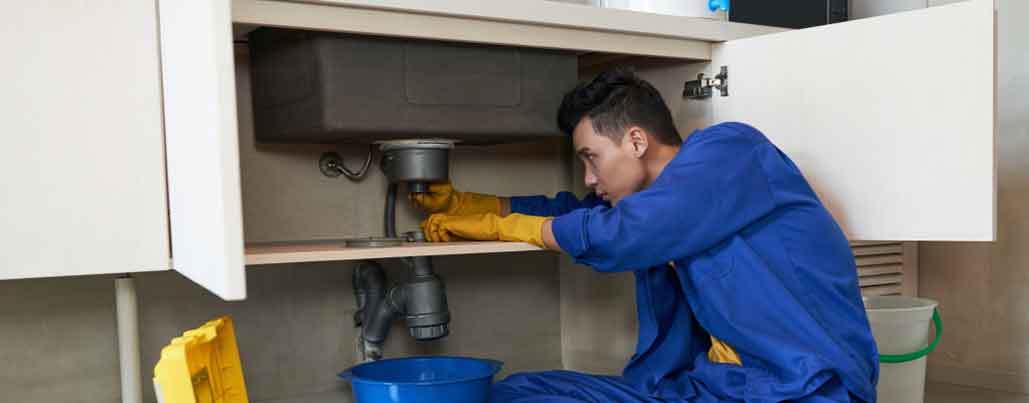Blog
- Home
- blog

How to Spot Signs Your Grease Trap Needs Cleaning
A grease trap is an essential part of the plumbing system in any commercial kitchen, ensuring that grease, fats, and oils do not enter the sewage system and cause blockages. However, like any other system, grease traps require regular maintenance and cleaning to function efficiently. In this blog, we will discuss how to spot the signs that your grease trap needs cleaning and why it’s crucial to do so.
Get in touch
Would you like to connect with us?
1. Slow Draining Sinks
One of the most common signs that your grease trap needs cleaning is slow drainage from your sinks. Over time, grease, food particles, and oils accumulate in the trap, causing it to clog. As the grease trap fills up, water starts draining slower, leading to backups and potential flooding in the kitchen.
Solution: If you notice slow drainage, it’s time to call for professional grease trap cleaning services to prevent further blockages and maintain optimal kitchen operations.
2. Foul Odors in the Kitchen
Grease traps are designed to prevent foul smells from escaping into your kitchen or sewer system. However, if the trap is full or clogged, it cannot perform its job properly. The accumulation of grease and food debris creates an environment for bacteria to grow, causing unpleasant odors to spread.
Solution: A persistent, unpleasant smell is a clear indicator that your grease trap needs immediate attention. Professional grease trap cleaning in Dubai will ensure your kitchen remains free from odors and your trap is working effectively.
3. Gurgling Noises from Drains
If you hear gurgling noises from your kitchen drains, it’s a sign that air is trying to escape through the drain, often due to blockages in the grease trap. This can lead to water backup and potential flooding in the kitchen if left unaddressed.
Solution: A gurgling sound is a signal that your grease trap is overburdened. It’s important to get it cleaned before the issue escalates.
4. Overflowing or Backed-Up Grease Trap
When your grease trap becomes too full, it can overflow, sending grease and wastewater back into your kitchen sinks. This not only creates a messy situation but can also lead to costly repairs. An overflowing grease trap can severely disrupt kitchen operations and pose health risks due to contamination.
Solution: If you notice any grease or wastewater spilling from the trap, it’s critical to arrange for a professional cleaning service right away to prevent further damage and maintain a sanitary kitchen environment.
5. Reduced Water Flow
If water is flowing sluggishly or not at all, your grease trap may be clogged with an excessive buildup of grease and solid waste. Reduced water flow can also impact other parts of your plumbing system, causing further issues and leading to costly repairs.
Solution: To restore proper water flow and avoid costly plumbing repairs, schedule a grease trap cleaning service regularly.
Why Regular Grease Trap Cleaning is Important?
Regular cleaning and maintenance of your grease trap are essential to ensuring its efficiency. If neglected, grease buildup can lead to major plumbing problems, foul odors, and even health code violations. In Dubai, where strict hygiene standards are enforced in commercial kitchens, regular grease trap cleaning is not only necessary but also mandatory.
Key Benefits of Regular Grease Trap Cleaning:
- Prevents clogging and blockages in the plumbing system
- Reduces the risk of unpleasant odors
- Ensures compliance with local health and safety regulations
- Improves the efficiency of kitchen operations
- Extends the lifespan of your plumbing system and grease trap
Grease Trap Cleaning Services in Dubai
If you’re looking for reliable and professional grease trap cleaning services in Dubai, Pesco provides top-notch maintenance solutions for all types of commercial kitchens. Our team of experts will ensure that your grease trap is cleaned thoroughly and safely, following all necessary guidelines to ensure your kitchen remains compliant and efficient.
FAQs About Grease Trap Cleaning
Q1: How often should I clean my grease trap?
The frequency of grease trap cleaning depends on the size of the trap and the volume of waste generated. Typically, grease traps should be cleaned every 3 to 6 months. However, high-volume kitchens may require more frequent cleanings.
Q2: Can I clean the grease trap myself?
While minor maintenance tasks like inspecting the trap can be done by kitchen staff, grease trap cleaning requires specialized equipment and knowledge. It’s best to hire a professional cleaning service to ensure proper cleaning and avoid damage to the system.
Q3: What are the consequences of not cleaning my grease trap?
Neglecting to clean your grease trap can lead to plumbing issues, foul odors, slow drainage, and potential violations of local health codes. It can also result in costly repairs and disruptions to your kitchen operations.
Q4: How can I prevent grease buildup in the future?
Implementing grease control practices, such as using grease interceptors and educating kitchen staff on proper waste disposal, can help reduce the frequency of grease trap cleaning. Regular professional cleaning is still recommended to keep the system functioning efficiently.
If you’re in need of professional grease trap cleaning in Dubai, contact Pesco today to schedule a cleaning and ensure your kitchen remains running smoothly.

